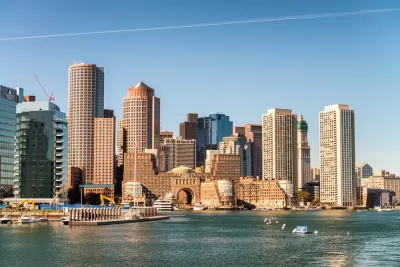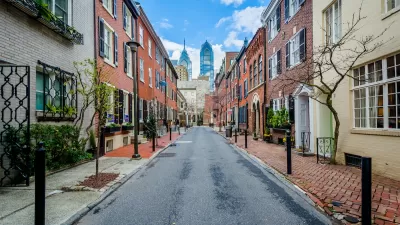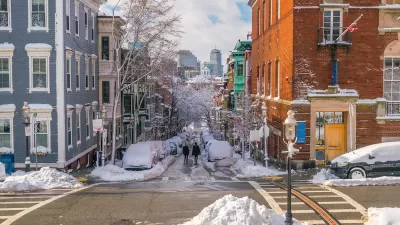The city of Boston is in the midst of a housing boom, and the city is considering asking developers to set aside a larger number of their units for affordable housing.

Boston's hot property market is putting a crunch on affordable housing. The city's Inclusionary Development Policy requires developers to set aside a percentage of their units for lower rents and the city is now considering raising that percentage. "That would make it the second increase in three years," writes Tim Logan.
The Inclusionary Development Policy is one of a few tools the city has for creating affordable housing. "Walsh has tried other ways to boost affordable housing, endorsing a small surcharge on property owners approved by city voters in 2016, and requiring more affordable units in buildings that go up on city-owned land," Logan reports.
Those in favor of raising the requirement point to Boston's housing boom as evidence that more could be asked of developers; those against it caution that adding too many requirements might slow developers too much and stop affordable housing from getting built in the first place.
FULL STORY: Boston might require developers to set aside more low-income units

Trump Administration Could Effectively End Housing Voucher Program
Federal officials are eyeing major cuts to the Section 8 program that helps millions of low-income households pay rent.

Planetizen Federal Action Tracker
A weekly monitor of how Trump’s orders and actions are impacting planners and planning in America.

Ken Jennings Launches Transit Web Series
The Jeopardy champ wants you to ride public transit.

California Invests Additional $5M in Electric School Buses
The state wants to electrify all of its school bus fleets by 2035.

Austin Launches $2M Homelessness Prevention Fund
A new grant program from the city’s Homeless Strategy Office will fund rental assistance and supportive services.

Alabama School Forestry Initiative Brings Trees to Schoolyards
Trees can improve physical and mental health for students and commnity members.
Urban Design for Planners 1: Software Tools
This six-course series explores essential urban design concepts using open source software and equips planners with the tools they need to participate fully in the urban design process.
Planning for Universal Design
Learn the tools for implementing Universal Design in planning regulations.
Ada County Highway District
Clanton & Associates, Inc.
Jessamine County Fiscal Court
Institute for Housing and Urban Development Studies (IHS)
City of Grandview
Harvard GSD Executive Education
Toledo-Lucas County Plan Commissions
Salt Lake City
NYU Wagner Graduate School of Public Service




























